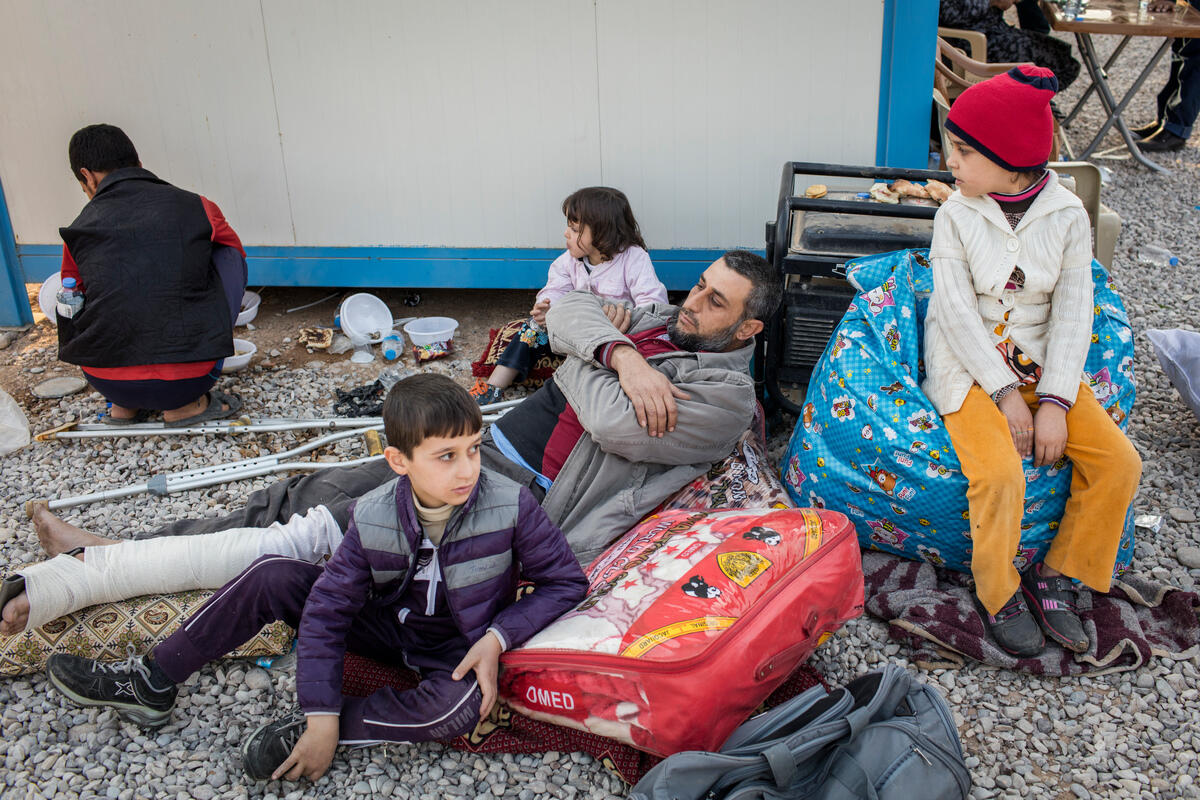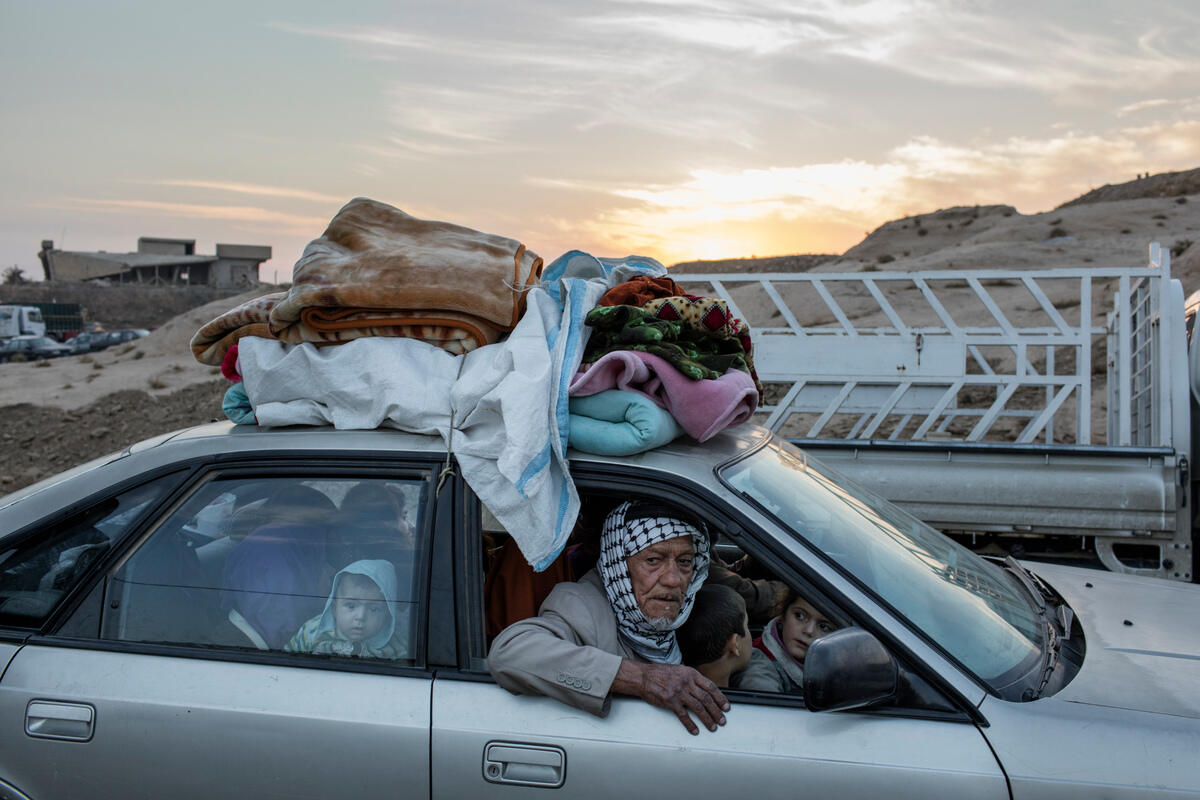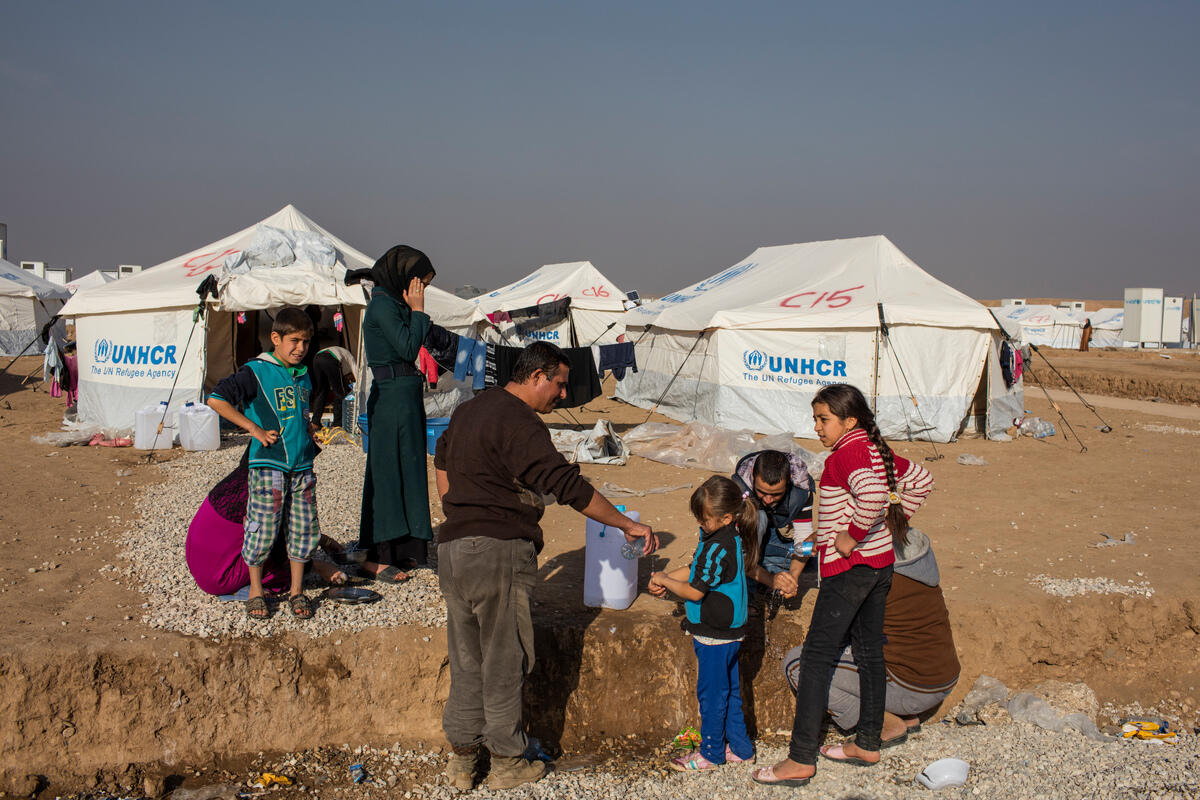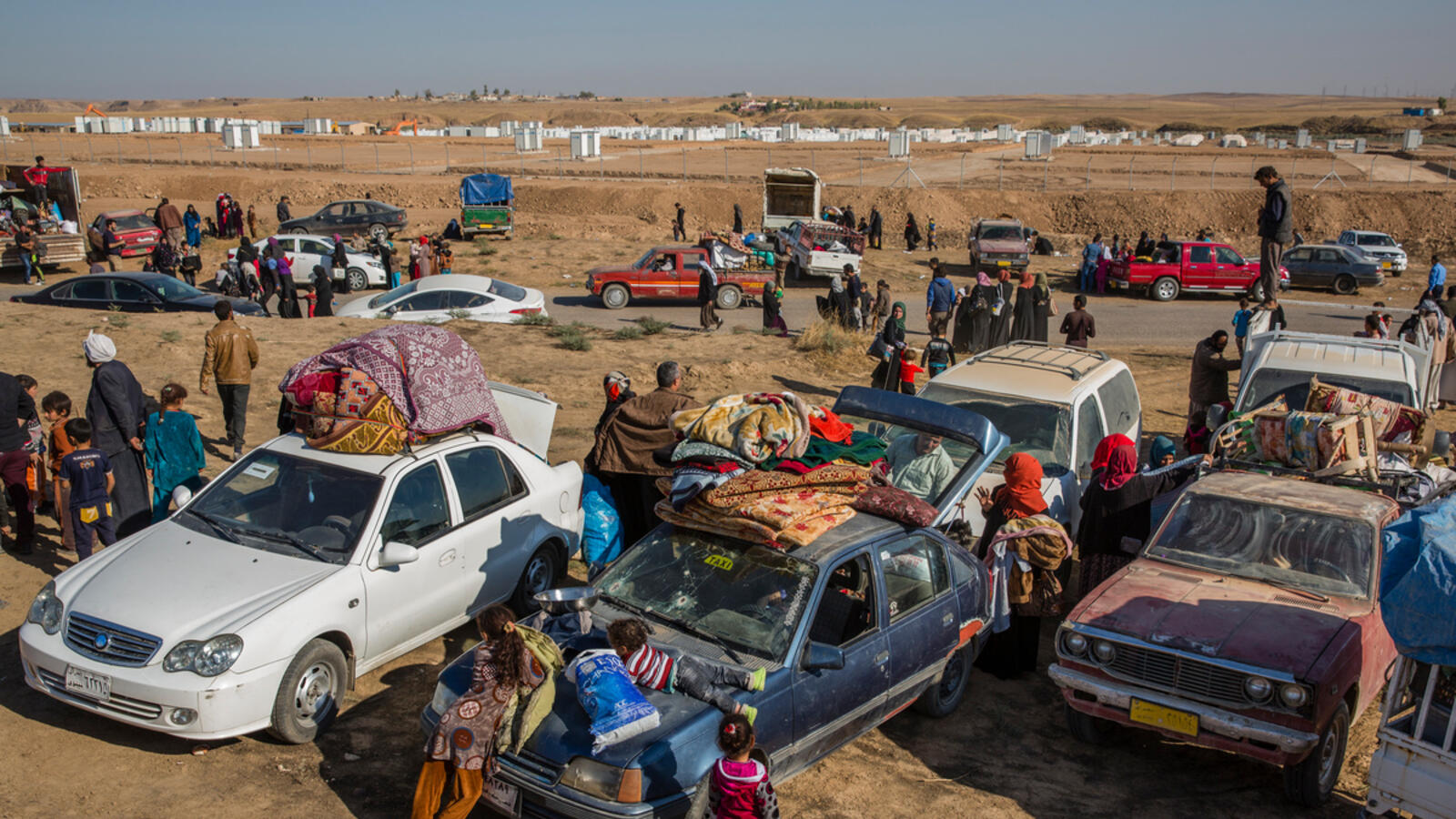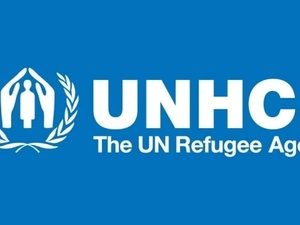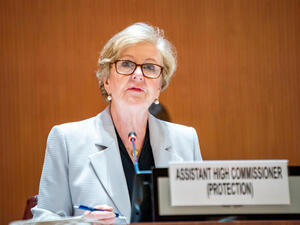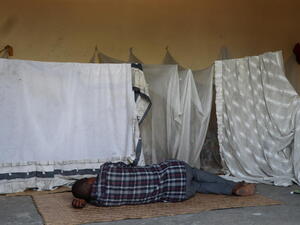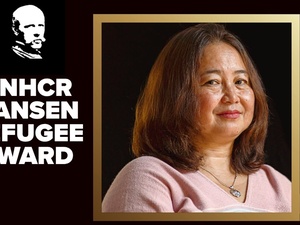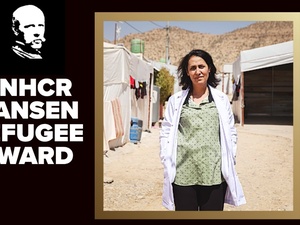Mosul residents tell of harsh rule and perilous flight
Mosul residents tell of harsh rule and perilous flight

Abdelwahed Mahmoud fled with his wife and four children when Iraqi security forces entered their village south of Mosul last week.
HASANSHAM, Iraq – Abdelwahed Mahmoud first learnt of the impending military offensive on Mosul three weeks ago, when leaflets dropped from planes began raining down on his village, Gelyuhan, a few kilometres south of Iraq’s second city.
The leaflets said the Iraqi Security Forces were coming to re-take the area from militants who had controlled it for more than two years. They told civilians to avoid known militant positions, and how best to evacuate their homes when the security forces reached them.
“When I read it I was scared for the safety of my children, but I also felt hope,” 35-year-old Abdelwahed, a former truck-driver, said. “[The militants] told us to retreat towards Mosul, but I knew they wanted to use us as human shields, so we ignored them.”
The fighting started early in the morning a week ago, and initially Abdelwahed and his family remained huddled in their home as the battle raged outside. During a lull in the fighting, he packed his wife and four children into their car and joined a 10-vehicle convoy heading towards the Iraqi Security Forces’ lines.
“As we drove, mortars were fired at us from behind. A large truck at the rear of the convoy was hit."
“As we drove, mortars were fired at us from behind. A large truck at the rear of the convoy was hit, but luckily no one was killed,” he said. As they reached the army’s positions, Abdelwahed got out of the car and began waving a white flag, which he had improvised by tying a white dishdasha – a traditional robe – to a long stick.
After spending two nights sleeping in a school near the frontline, the family was directed to the government-run Khazer camp near Hasansham village, around 30 kilometres east of Mosul. Here they were given shelter and a hot meal, while UNHCR, the UN Refugee Agency, provided mattresses, blankets and other essentials.
Abdelwahed and his family are among more than 34,000 men, women and children who have fled their homes since the start of the offensive on October 17.
More than a third of the total have been displaced during the last four days, with the flow of new arrivals set to increase sharply as fighting moves into more densely populated urban areas around Mosul. UNHCR is constructing 11 camps across northern Iraq to host the displaced, with five camps currently receiving people fleeing the city.
With the first section of Khazer camp at full capacity, on Friday UNHCR opened a new camp a few kilometres down the road at Hasansham to help cope with the influx.
The increased rate of displacement has seen the new camp almost reaching its capacity in just three days. There are now more than 6,469 people at Hasansham, and with families continuing to arrive throughout the day, it is likely the camp will be full tonight.
Among them is Ahmad Fares, a 23-year old meat trader from Gogjali, an eastern suburb of Mosul. He was working in the city in June 2014 when it fell under militant control, and was forced to remain. Other members of his family, however, including his cousin Yehya, had been able to escape to Erbil in the Kurdistan Region of Iraq, where they have lived ever since.
Outside Ahmad’s tent in Hasansham, there was a tearful reunion as he, Yehya and other family members kissed and embraced each other for the first time in more than two years.
Describing life in Mosul during that time, Ahmad said the first couple of months were much the same as normal. “Then they started saying you had to grow a beard, stop smoking, and wear your trousers like this,” he said, pulling up his pants leg and holding it tightly around his calf. “You couldn’t even have logos on your clothes.”
"I felt as if I had fallen out of the sky and straight into hell."
As a member of the Shabak religious minority, Ahmad and his family were threatened with execution unless they paid special “taxes” to the militants, despite being unable to work. “I felt as if I had fallen out of the sky and straight into hell,” Ahmad said.
Contact with their relatives in Erbil was infrequent. There was no Internet coverage, and mobile telephone reception was sporadic at best. They spoke when they could, despite the harsh punishments for those caught using phones. “We used to bury our mobiles in the garden for safety,” Ahmad explained.
Yehya smiled as he recalled the moment two days previously when Ahmad had found mobile reception and called to let them know he and his relatives had escaped. “We have been dreaming about this for more than two years. We all started crying with happiness,” Yehya said.
Ahmad and his family hope to join Yehya and their other relatives in Erbil until it is safe to return to Mosul. But for Abdelwahed and many thousands of other displaced Iraqis, they face the prospect of spending a cold winter living in tents, with predictions that the battle for Mosul could last for months.
UNHCR’s Mosul emergency response remains less than half funded with US$95 million out of total of the $196.2 million requested. Of this, US$60 million is specifically required to provide urgent winter assistance to families
Abdelwahed is stoic about the future. “We suffered for two years, living without food, without work, without freedom. Staying here for the winter cannot be harder than that,” he said.



